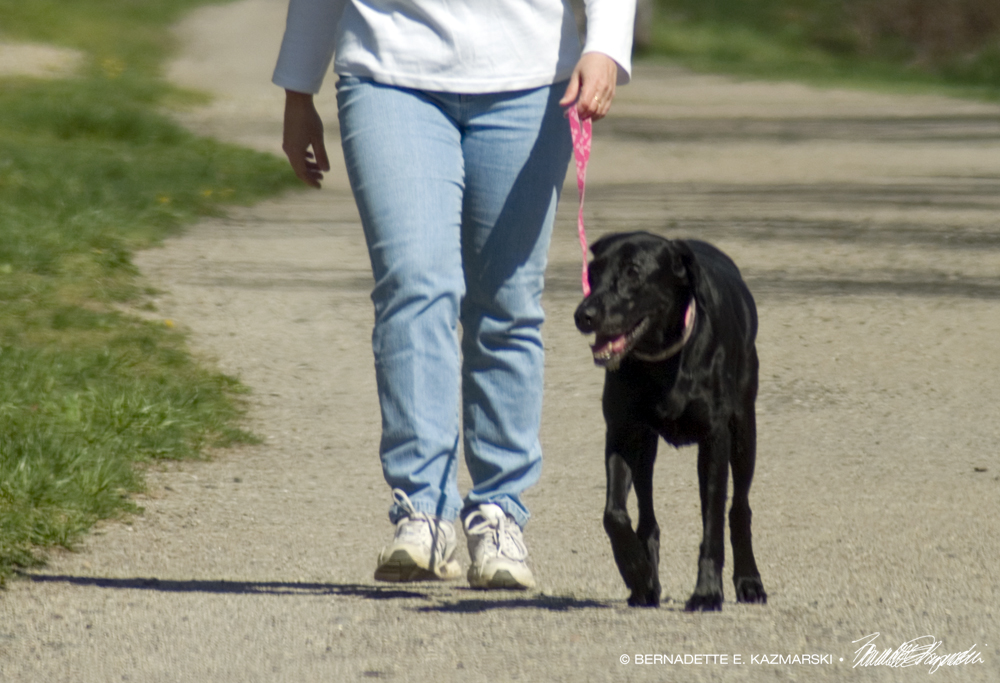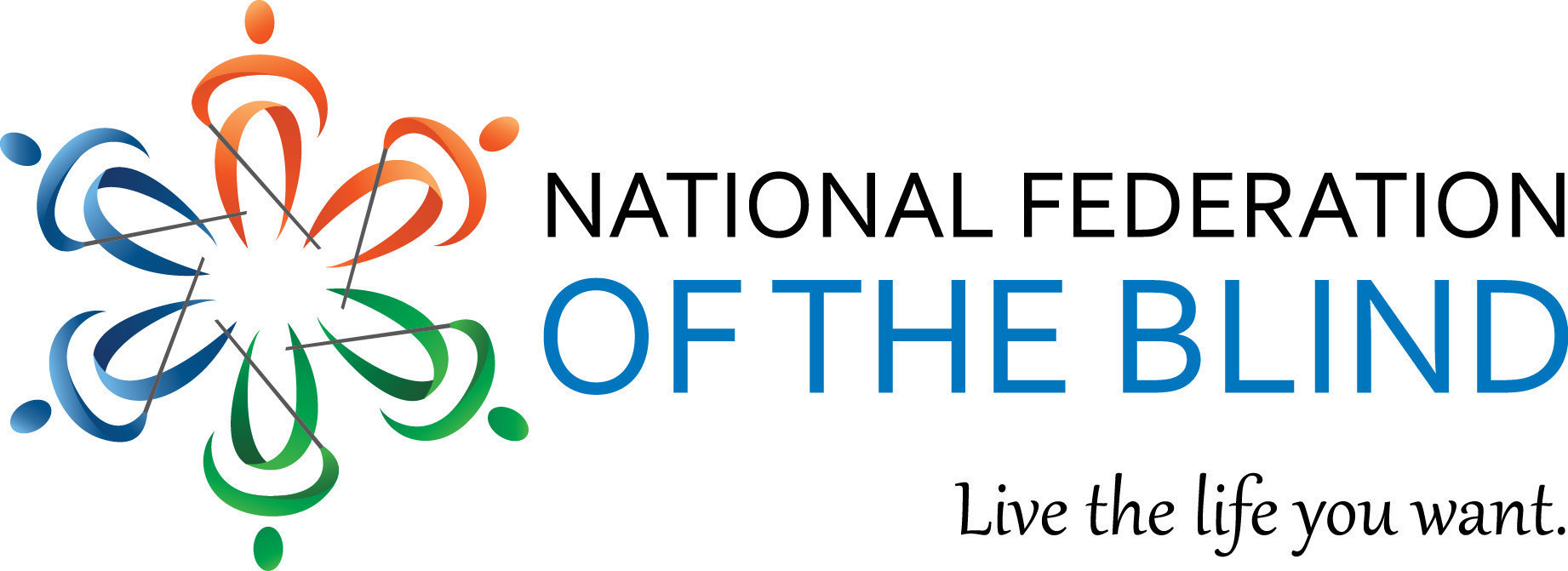Press Release: Delta Introduces Enhanced Requirements for Service or Support Animals, National Federation of the Blind Statement

As people have come to understand that animals can support our mental and physical health on an everyday basis support animals have become an essential part of daily living for many people in need. Service and support animals are accommodated in public places as a part of the Americans with Disabilities Act. Service animals in particular, seeing-eye dogs for example, are focused on the person to whom they are providing their trained service and are highly trained to be calm and focused in any situation. Support animals don’t necessarily have that training and in some cases have acted aggressively or urinated/defecated in a public space, and flyers have attempted to board with exotic species for support such as peacocks and snakes.
In January Delta Airlines announced advance documentation requirements for service/support animals in order to help protect passengers and other service animals on their planes. The National Federation of the Blind released a statement noting their concerns about Delta’s requirements and the many blind passengers with guide dogs who have always been able to ticket and board the plane as sighted people. (United Airlines also announced a similar change on February 1.)
Both press releases are below along with information on how and where to state your opinion of the situation.
~~~
Delta introduces enhanced requirements for customers traveling with service or support animals effective March 1
Delta carries more than 250,000 service and support animals annually, an increase of nearly 150 percent since 2015
ATLANTA, Jan. 19, 2018 /PRNewswire/ — Delta Air Lines (NYSE: DAL) is taking steps to further protect its customers, employees and service and support animals by implementing advance documentation requirements for those animals. This comes as a result of a lack of regulation that has led to serious safety risks involving untrained animals in flight. The new requirements support Delta’s top priority of ensuring safety for its customers, employees and trained service and support animals, while supporting the rights of customers with legitimate needs, such as disabled veterans, to travel with trained animals.
Delta carries approximately 700 service or support animals daily – nearly 250,000 annually. Putting this into perspective, Delta carries more than 180 million passengers annually. Customers have attempted to fly with comfort turkeys, gliding possums known as sugar gliders, snakes, spiders and more. Ignoring the true intent of existing rules governing the transport of service and support animals can be a disservice to customers who have real and documented needs. Delta has seen an 84 percent increase in reported animal incidents since 2016, including urination/defecation, biting and even a widely reported attack by a 70-pound dog. In 2017, Delta employees reported increased acts of aggression (barking, growling, lunging and biting) from service and support animals, behavior not typically seen in these animals when properly trained and working.
New Procedures & Updated Requirements
In compliance with the Air Carrier Access Act, Delta provides in-cabin travel for service and support animals without charge. The guidelines, effective March 1, require that all customers traveling with a service or support animal show proof of health or vaccinations 48 hours in advance. In addition to the current requirement of a letter prepared and signed by a doctor or licensed mental health professional, those with psychiatric service animals and emotional support animals will also need to provide a signed document confirming that their animal can behave to prevent untrained, sometimes aggressive household pets from traveling without a kennel in the cabin. These measures are intended to help ensure that those customers traveling with a trained service or support animal will no longer be at risk of untrained pets attacking their working animal, as has previously been reported.
“The rise in serious incidents involving animals in flight leads us to believe that the lack of regulation in both health and training screening for these animals is creating unsafe conditions across U.S. air travel,” said John Laughter, Delta’s Senior Vice President – Corporate Safety, Security and Compliance. “As a leader in safety, we worked with our Advisory Board on Disability to find a solution that supports those customers with a legitimate need for these animals, while prioritizing a safe and consistent travel experience.”
In developing the updated requirements, Delta solicited the feedback and input of its 15-member Advisory Board on Disability, a group of disability advocates established more than a decade ago and composed of diverse Delta frequent flyers with a range of disabilities.
Air Carrier Access Act
As the Title 14 Code of Federal Aviation Regulations § 382.117 dictates, “you must permit the service animal to accompany the passenger with a disability at any seat in which the passenger sits, unless the animal obstructs an aisle or other area that must remain unobstructed to facilitate an emergency evacuation.” However, untrained animals that have been misidentified as service and support animals are regularly reported to occupy seats, stretch across the aisles and move throughout the cabin during flight, often without restriction. That same regulation also requires that airlines determine whether any factors preclude travel in the cabin by a service animal. Such factors include: “whether the animal would pose a direct threat to the health or safety of others” and “whether it would cause a significant disruption of cabin service.”
“We are committed to consistently improving our policies, prioritizing the safety of all Delta customers and employees,” said Laughter. “We have received extensive customer feedback through calls, emails and social posts – many from among those within the disability community – urging Delta to take action. This new policy is our first step in better protecting those who fly with Delta with a more thoughtful screening process.”
What Customers with Service and Support Animals Need To Know
Any customer traveling with a service or support animal on/after March 1 will need to meet the new requirements as outlined below:
Traveling with a trained service animal
- Customers traveling with a trained service animal will be required to submit a signed Veterinary Health Form and/or an immunization record (current within one year of the travel date) for their animal to Delta’s Service Animal Support Desk via Delta.com at least 48 hours in advance of travel.
Traveling with an emotional support animal or psychiatric service animal
- Customers traveling with an emotional support animal or psychiatric service animal will be required to submit a signed Veterinary Health Form and/or an immunization record (current within one year of the travel date), an Emotional Support/Psychiatric Service Animal Request form which requires a letter prepared and signed by a doctor or licensed mental health professional, and a signed Confirmation of Animal Training form to Delta’s Service Animal Support Desk via Delta.com at least 48 hours in advance of travel.
Delta is creating a Service Animal Support Desk for customers traveling with service and support animals to improve their travel experience and ensure they receive excellent customer service. This desk will verify that the above documentation is received and confirm the customer’s reservation to travel with the animal, prior to arrival at the airport. If a form is not completed, a representative will communicate with the customer via e-mail to request the missing or incomplete items.
Delta does not accept exotic or unusual service or support animals. Additional information on types of accepted animals and other questions related to traveling with service and support animals is available here.

Delta Air Lines serves more than 180 million customers each year. In 2017, Delta was named to Fortune’s top 50 Most Admired Companies in addition to being named the most admired airline for the sixth time in seven years. Additionally, Delta has ranked No.1 in the Business Travel News Annual Airline survey for an unprecedented seven consecutive years. With an industry-leading global network, Delta and the Delta Connection carriers offer service to 314 destinations in 54 countries on six continents. Headquartered in Atlanta, Delta employs more than 80,000 employees worldwide and operates a mainline fleet of more than 800 aircraft. The airline is a founding member of the SkyTeam global alliance and participates in the industry’s leading transatlantic joint venture with Air France-KLM and Alitalia as well as a joint venture with Virgin Atlantic. Including its worldwide alliance partners, Delta offers customers more than 15,000 daily flights, with key hubs and markets including Amsterdam, Atlanta, Boston, Detroit, Los Angeles, Mexico City, Minneapolis/St. Paul, New York-JFK and LaGuardia, London-Heathrow, Paris-Charles de Gaulle, Salt Lake City, São Paulo, Seattle, Seoul, and Tokyo-Narita. Delta has invested billions of dollars in airport facilities, global products and services, and technology to enhance the customer experience in the air and on the ground. Additional information is available on the Delta News Hub, as well as delta.com, Twitter @DeltaNewsHub, Google.com/+Delta, and Facebook.com/delta.
SOURCE Delta Air Lines
CONTACT: Delta Corporate Communications, 404-715-2554, News archive at news.delta.com
RELATED LINKS
http://www.delta.com
~~~
National Federation of the Blind Statement on Delta’s New Service Animal Policy
BALTIMORE, Jan. 23, 2018 /PRNewswire-USNewswire/ — The National Federation of the Blind stated the following with regard to the new service and support animal policy announced by Delta Air Lines on January 19:
We are deeply concerned that Delta Air Lines has taken this action without consulting the National Federation of the Blind, our division the National Association of Guide Dog Users, or any other democratically elected representative of blind Americans. Blind people have safely and successfully used guide dogs for decades, but this policy fails to make a clear or practical distinction among guide dogs, other “service and support animals” (as Delta puts it), and pets. Onerous restrictions on guide dog handlers do not resolve anything and violate the principle of equal access for passengers with disabilities. Furthermore, we believe that elements of Delta’s policy, as currently articulated, violate the Air Carrier Access Act.
We are particularly troubled by the requirement that guide dog users submit paperwork to Delta forty-eight hours before flying. Travelers without guide dogs are not required to plan their travel forty-eight hours in advance. Furthermore, guide dog users will no longer be able to fly Delta in family, medical, or other emergencies. We believe that this forty-eight hour requirement is both unnecessary and unlawful.
We are asking for an urgent meeting with Delta and stand ready to work with it and other airlines to craft fair and reasonable policies to address the concerns of air carriers, their personnel, and their passengers, without imposing undue, unsupported, and unlawful hardships on guide dog users.
About the National Federation of the Blind

The National Federation of the Blind (NFB), headquartered in Baltimore, is the oldest and largest nationwide organization of blind Americans. Founded in 1940, the NFB consists of affiliates, chapters, and divisions in the fifty states, Washington DC, and Puerto Rico. The NFB defends the rights of blind people of all ages and provides information and support to families with blind children, older Americans who are losing vision, and more. We believe in the hopes and dreams of blind people and work together to transform them into reality. Learn more about our many programs and initiatives at www.nfb.org.
CONTACT:
Chris Danielsen
Director of Public Relations
National Federation of the Blind
(410) 659-9314, extension 2330
(410) 262-1281 (Cell)
[email protected]
SOURCE National Federation of the Blind
RELATED LINKS
http://www.nfb.org
~~~
To state your opinion to the FAA
To submit your own concerns and comments please go to: https://airconsumer.dot.gov/escomplaint/ConsumerForm.cfm
Read other Press Releases and Publicity
Gifts featuring cats you know! Visit Portraits of Animals
Fine Art • Photography • Gifts • Greeting Cards • Books • Commissioned Portraits & Artwork
Great Rescues Day Book:
Portraits, Rescue Stories, Holidays and Events, Essential Feline Information, All in One Book

Each month features one of my commissioned portraits of a feline or felines and their rescue story along with a kitty quote on the left page, and on the right page the month name with enough lines for all possible dates, with standard holidays and animal-themed observances and events. Great Rescues also includes a mini cat-care book illustrated with my drawings including information on finding strays or orphaned kittens, adopting for the first time or caring for a geriatric cat, a list of household toxins and toxic plants, or helping stray and feral cats and beginning with TNR.
Each book includes also 10 sheets of my “22 Cats” decorative notepaper with a collage of all the portraits in black and white so you can make your own notes or write special notes to friends.
The portraits in this book, collected as a series, won both a Certificate of Excellence and a Muse Medallion in the 2011 Cat Writers’ Association Annual Communication Contest, as well as the 22 Cats Notepaper mentioned below.

Copyright
All images and text used on this site are copyrighted to Bernadette E. Kazmarski unless otherwise noted and may not be used without my written permission, although links to your site are more than welcome and are shared. Please ask if you are interested in using and image or story in a print or internet publication. If you are interested in purchasing a print of an image or a product including it, check my animal and nature website Portraits of Animals to see if I have it available already. If you don’t find it there, visit Ordering Custom Artwork for more information on a custom greeting card, print or other item.
Subscribe to my e-newsletter
Subscribe to The Creative Cat Preview E-newsletter.
© 2022 | www.TheCreativeCat.net | Published by Bernadette E. Kazmarski
Weekly schedule of features:
Sunday: Essays, Pet Loss, Poetry, The Artist’s Life
Monday: Adoptable Cats, TNR & Shelters
Tuesday: Rescue Stories
Wednesday: Commissioned Portrait or Featured Artwork
Thursday: New Merchandise
Friday: Book Review, Health and Welfare, Advocacy
Saturday: Your Backyard Wildlife Habitat, Living Green With Pets, Creating With Cats
And sometimes, I just throw my hands in the air and have fun!
PORTRAITS OF ANIMALS WEBSITE
FACEBOOK | TWITTER | LINKEDIN | PINTEREST | TUMBLR | INSTAGRAM | YOUTUBE| EMAIL | PATREON



Emotional support animals are not protected by the ADA laws nor do they have public access. The FHA and ACAA covers them but they are allowed to live and fly with a person but they are not allowed in restaurants or anywhere that pets are not allowed.
Bunny, I have tried to answer this twice and my reply just won’t stay! Let’s see if this one does.
Okay, since that response posted, here we go.
I used this document for the ADA regulations: Service Animals and Emotional Support Animals, https://adata.org/publication/service-animals-booklet
The definition of a service animals is clearly stated in this section as an animal trained to a specific task: II. Service Animal Defined by Title II and Title III of the ADA
And in the next section they are not considered service animals under the ADA: III. Other Support or Therapy Animals
However, “V. Handler’s Rights” states that, “A public accommodation or facility is not allowed to ask for documentation or proof that the animal has been certified, trained, or licensed as a service animal. Local laws that prohibit specific breeds of dogs do not apply to service animals.” I asked an attorney about this and this statement confuses the issue which was clear up to this point. Someone can claim “this is a service dog”–and for now only dogs and mini horses are actually permitted as service animals–but you don’t have to prove it, and they have to accommodate you and your dog. Now, that’s not saying it’s a support animal so the person in question is not being truthful or is making the same mistake many others do in calling all dogs who do something for us service dogs.